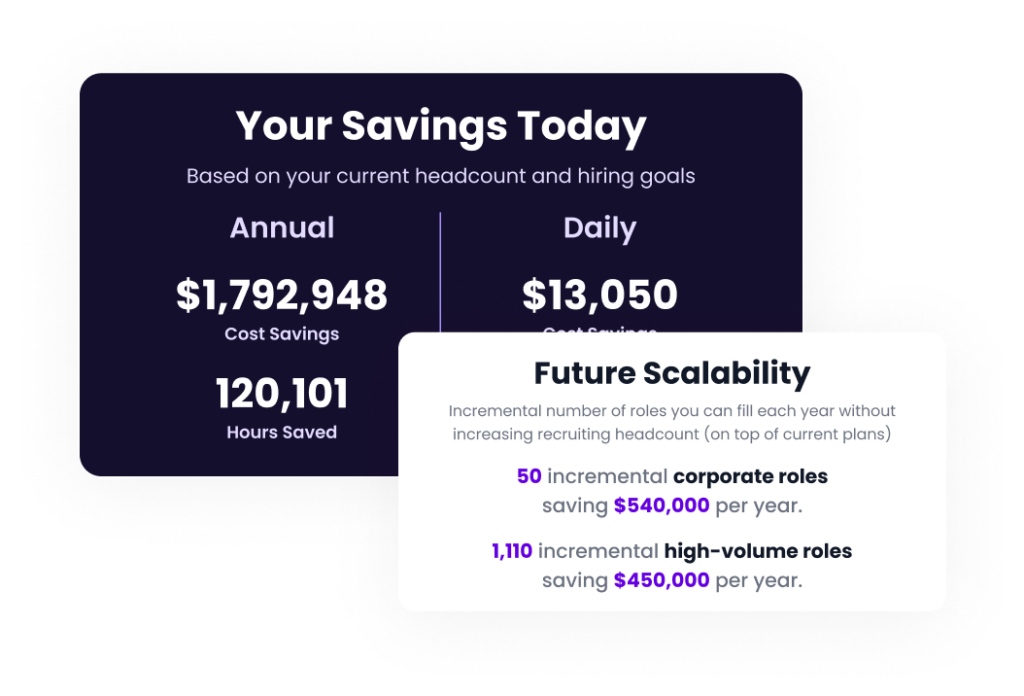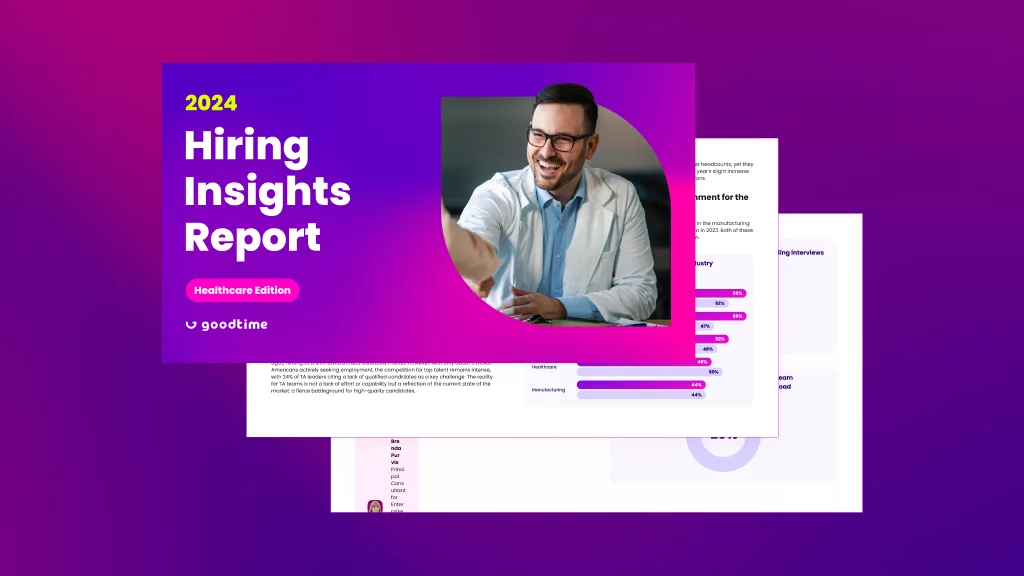HR teams have their hearts in the right place—no doubt about it. They’re dead set on improving their hiring processes by uplifting the components that candidates truly care about. But their execution…? That’s a different story.
Our 2022 Hiring Insights Report surveyed 560 HR and talent decision makers to understand the most pressing challenges facing their teams, and what should be done to reel in top talent.
We found one striking pattern: many productive conversations surrounding what matters most in hiring, yet not as much action.
These conversations include the importance of emphasizing well-being, DEIB (diversity, equity, inclusion, & belonging), candidate relationships, and company culture within the hiring process.
And as a result? Talent teams are missing their goals. In fact, teams fell 50% short of their hiring goals last year. They need to start walking the walk.
Let’s dig into the data.
Candidate Well-being Takes a Back Seat
Shock of the century: candidates want to work at companies that value their well-being. Who woulda thought?
Hiring teams are certainly aware of that fact. Fifty-nine percent of respondents from our report said “employee well-being” was the top enticement for attracting talent. Happy candidates tend to become happy employees, so it’s only logical that teams would see prioritizing well-being as a great way to reel in talent.
But…are teams actually prioritizing well-being when handling candidates? The data isn’t hopeful.
When asked what their organization does to build relationships with candidates during the recruiting process, “interest in candidate’s well-being” was the third least selected response (35%).
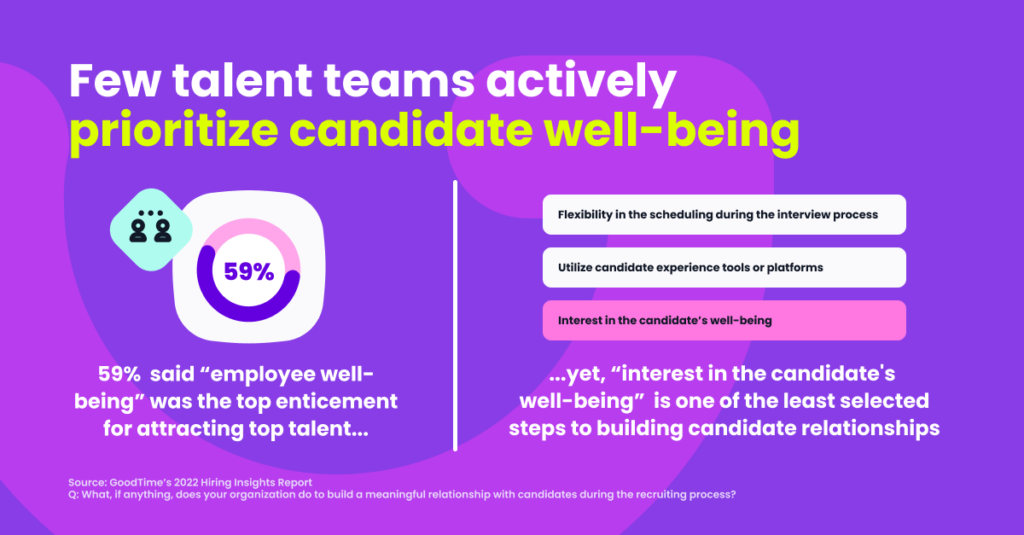
The way that candidates are treated in the hiring process clues them in on how they’d be treated as new hires. If a hiring team vocalizes that they support their employees’ well-being, yet they don’t show the same support to candidates, they cannot expect candidates to believe their claims.
Little Action Taken on DEIB
We hear you: for companies with limited resources and people to get the job done, emphasizing DEIB can turn into a big undertaking.
Even so, there’s a variety of low-lift DEIB strategies that teams can take action on. Above all, neglecting DEIB deters diverse talent. Many BIPOC candidates need to see that DEIB is prioritized before they can envision themselves at a company.
At first, it seems that hiring teams understand the importance of having a DEIB-centric process. Companies from our report said that “diversity of candidates” is the second most important hiring metric to measure.
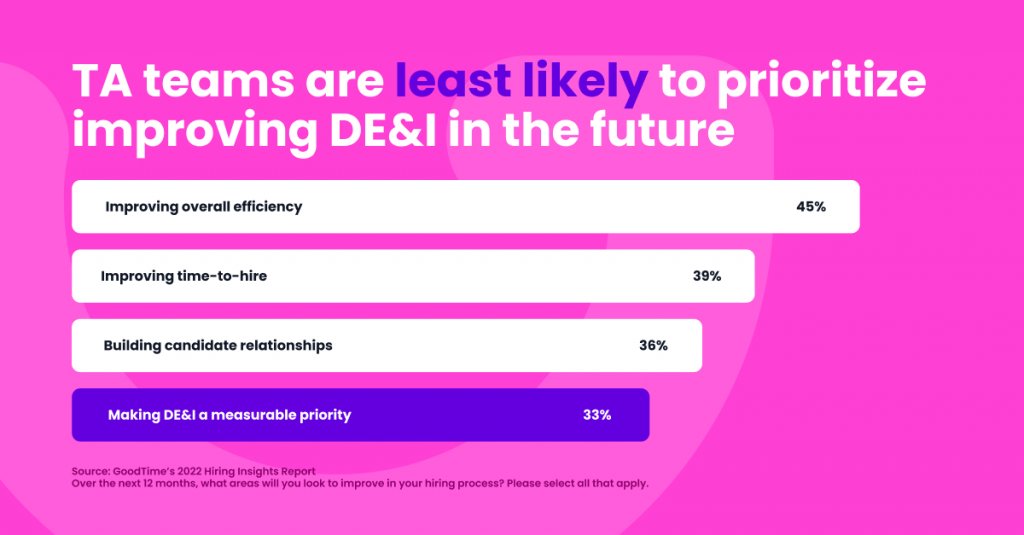
But the positives stop there. Only 31% of respondents made DEIB a measurable priority in the past 12 months. In the coming months, just 33% of respondents plan to focus on DEIB.
When teams leave DEIB on the back burner, they not only deflect diverse talent, but also tarnish their business. Diverse teams produce 19% higher revenue. Actioning on DEIB just makes sense.
Candidate Relationships Fall to the Wayside
To snag the best talent, investing energy into candidate relationships is non-negotiable. Building an authentic connection with talent throughout the hiring process maintains their interest amid a sea of other offers.
On the bright side, 46% of respondents said that forming genuine connections with candidates is more important than ever.
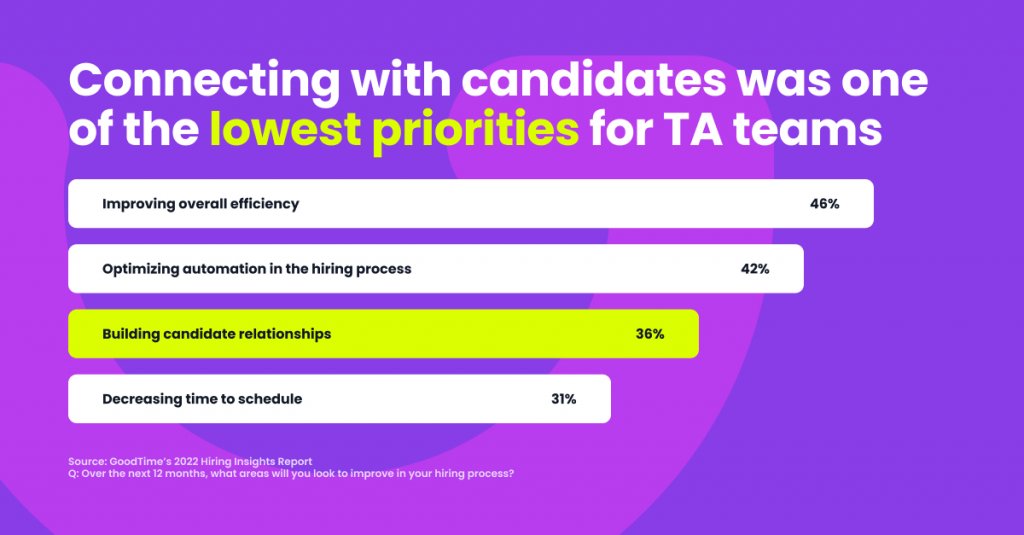
Yet despite this consensus, just 36% of respondents looked to build better candidate relationships in the past 12 months, and the same percentage plan on improving these relationships in the future. Once again: good intentions, not-so-good execution.
Candidates are interviewing you as much as you’re interviewing them. They expect their recruiters to put in the work to form a connection.
Company Culture Remains Unexpressed
In any hiring process, there’s a very high chance that candidates will ask the classic question, “How would you describe your company culture?”
With 72% of candidates rejecting job offers because they don’t feel connected to the company culture, this is of utmost importance to talent.
It’s not lost on TA teams that job seekers deeply care about culture. Nearly all (90%) companies from our report said they designed their interview process to reflect their culture.
The problem? Just 53% communicate their company culture to candidates in the hiring process. In a nutshell, 47% of companies don’t convey an element that is crucial to candidates—and risk losing out on applicants due to this disregard.
Candidates want to know whether a company’s mission, values, and culture align with their own beliefs. They’re quick to turn down an offer if they don’t see this alignment.
Want the Latest Insights? Read the 2023 Hiring Insights Report
Good intentions, bad execution doesn’t bode well for teams’ hiring goals. But all hope is not lost. The first step in winning top talent is recognizing the most high-value elements that attract candidates. Hiring teams know what these are, so they’ve already done half the work.
The talent leaders from our survey possess the right mindset to succeed in today’s industry. Now, they must turn their intentions into actions.
Want to catch up on the latest hiring trends? Get excited: our 2023 Hiring Insights Report is now available. 500+ HR leaders, 1,000s of real findings, 1 industry-leading report. Read the report today.
Does interview scheduling automation make sense for my team?
ROI is key. This is not a time to invest in software that won’t bring you immediate value. So let’s eliminate the guesswork with our free ROI calculator.
